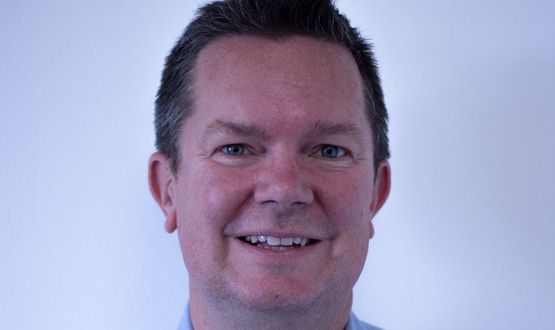Health CIO profile: Joanna Smith
- 30 July 2014

An “open door” to develop a transformational IT strategy was all the motivation Joanna Smith needed to make the move into the NHS.
Smith made the jump into the public sector last year, after spending more than 30 years working in the pharmaceutical industry.
She began her career in HR and sales before making a move into IT; becoming Roche’s UK head of IT business development before establishing a dedicated IT strategy as its UK head of IT for sales and marketing.
She then joined pharmaceutical company Takeda a its IT director, taking charge of its London and Singapore offices.
Smith says her move into the NHS was motivated by the desire to keep her focus on technological innovation, rather than dealing with the “political minefield” of the pharmaceutical industry.
“I worked in big global pharma all my life. I had a fabulous career and I loved all of it… but I also realised that the higher you go, the less it becomes about making a difference using technology and [the] more [it becomes] about playing politics.”
Sorting out networks, thinking about a new PAS
Smith applied for the chief information officer position at Royal Brompton and Harefield NHS Foundation Trust, and the support of the trust’s board of directors for an IT revamp convinced her that the job was right for her.
“They knew there was an IT barrier at the hospital, they knew it needed fixing, and they knew it would cost money, so I loved it. I knew what good looks like, I knew how to get it done, and I had an open door.”
After she started working at the trust in January 2013, Smith started work on getting an IT strategy and three-year plan signed off, audited and funded. “The first 12 months were all about discovery and design and planning and budgets.”
Now, she is dealing with a wide range of projects. The trust is upgrading its core network and setting up a wireless network so clinicians can access information as they more around the hospital.
It is also upgrading or replacing more than 2,500 PCs to make sure that they can run Microsoft’s relatively modern operating system, Windows 7.
Meanwhile, the trust’s legacy CSC patient administration system has reached the end of its support, and Smith is preparing to start an OJEU procurement process for a replacement at the end of the year.
“If the PAS doesn’t work, there will be a hell of a mess,” she says. “CSC have said they won’t cut us loose if we need them to support us, and the system is now locked down, with very tight change control.”
Tech fund projects
The trust also made successful bids for electronic document management and e-prescribing and medicines administration systems to the first round of NHS England’s technology fund. It should receive a total of £2.9m from the ‘Safer Hospitals, Safer Wards: Technology Fund’ for the two projects.
“The tech fund is both a gift and a challenge, because it gives you these really aggressive timescales. But could we afford to say no? No,” Smith says.
And as if that wasn’t enough to be going along with, the trust is working with Agfa to improve its picture archiving and communications system and to allow wider access to diagnostic scans, while also working on a clinical data warehouse to improve its research output.
Creating a new type of IT department
On top of this, Smith has led two major consultations to restructure her part of the organisation, splitting it into areas focussed on delivery and demand, and creating a project management office with business relationship managers to focus on the latter.
“IT services and solutions, that’s delivery. The operational stuff – the forward-thinking piece – is demand,” she says. “We’re focussed on going out and gathering the need, building the pipelines that have got to be aligned with the trust.”
A major focus of the restructuring has been to make sure that staff understand what is expected of them and are able to take a more active role within the trust.
“For my people, they don’t know what good looks like. [That’s inevitable] if, for 20 years, you’ve been told what to do; that there will be this procurement, this system.
“It’s about trust: my people have to trust that I sincerely want to find them good jobs and I want every single one of them to succeed. If they trust me, I can ensure they get training and support. But if people don’t trust me, if they’re too scared, that’s a challenge.”
Senior support helps with the pressure
Given the number of projects she is working on, it is understandable that Smith feels under some workload pressure.
“There’s a monkey on my shoulder – that I keep pushing away – that it’s going to be a disaster because we’re trying to do so much at the same time,” she says.
However, she says she has continued to receive strong support from Royal Brompton and Harefield’s senior management and that this has allowed her to focus on the work, rather than on the risks.
“I’m hugely impressed by the management at the trust. They know it’s highly difficult, and that you can’t make an omelette without breaking a few eggs.”
Smith sees the next few years as a chance to “get the foundation right”, upgrading core parts of the IT infrastructure before starting to make more innovative changes.
“The chief executive is not excited by spending £1m on the network and getting the PCs onto Windows 7, but for the next couple of years we just need these building blocks in place,” she argues.
“It’s about getting the basics right: it’s not sexy or transformational, but if you don’t have your systems running, if you don’t have your computers running, then nothing else can be done.”
While that is being done, clinicians will be asked for their thoughts on the IT strategy so it can be taken forward once some of the underpinning work is completed. “I want to make sure that by the time we’ve got the IT basics right, we’ve got an IT clinical strategy that’s ready to go.”
IT’s all about people
Smith is not on the trust’s board of directors, but reports directly to the chief executive. On the clinical side, she says she helped the trust’s chief clinical information officer to gain greater recognition within the organisation.
“He already had the role and the position as a key player in the trust’s IT strategy – I just helped him to get the title officially.”
Her advice for people who want to move into high-level IT roles in the NHS is to realise that their goals need to align with the rest of their organisation; and that their people skills are up to scratch.
“You’ve got to have a passion for the business, and you’ve got to see yourself as part of the business. I get increasingly irritated with people who talk about IT as if it’s separate – it’s just one part of the business.
“The bad news for techies is that a CIO has got to be good with relationships and people. If you really want to spend your days with technology, then the chief technology officer role is what’s best.”
| Fact box | |
| Name: | Joanna Smith |
| Job title: | CIO, Royal Brompton and Harefield NHS Foundation Trust |
| Time in current role: | 18 months |
| Key project: | Upgrade of core network and replacement/upgrade of more than 2,500 PCs so they can run Windows 7: “If you don’t have your systems running, if you don’t have your computers running, then nothing can be done.” |
| Favourite technology: | Wireless music centre to play music throughout the house. |
| Best thing about job: | “People and problem-solving: I love dealing with people, and I love solving problems.” |
| Worst thing about job: | “Reviewing documents that I don’t think are going to add much value, but that I’m expected to know about.” |



